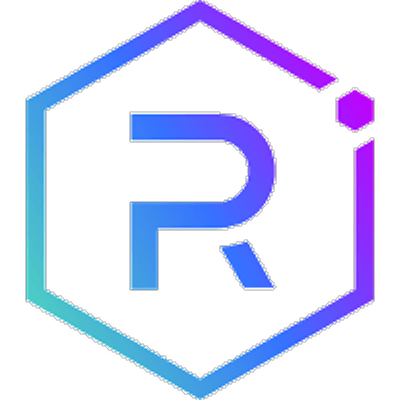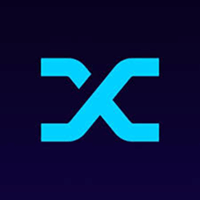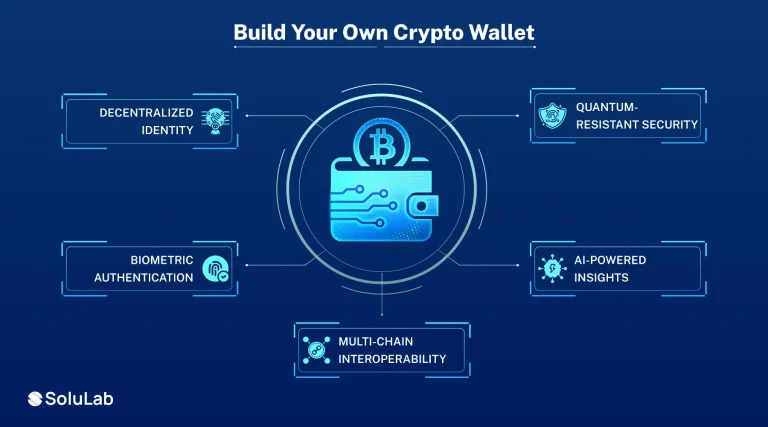Crypto trading has been changed by decentralized exchanges (DEXs), which remove the middlemen and grant customers total control over their assets. They use smart contracts to enable token swaps, which ensures more decentralization, security, and transparency than centralized exchanges.
Different decentralized crypto exchanges meet different trading needs. There is a need for a custom DEX made to fit your unique trading style, regardless of whether you value deep liquidity, governance involvement, or cheap costs.
In this blog, we’ll explore the top 10 DeFi DEX platforms and factors you should consider before choosing a platform. Let’s begin!
Factors to Consider When Evaluating DeFi DEX Platforms
As it is known, different trading demands are met by different decentralized exchange platforms, so choosing the right one is a bit tricky. Here are some factors you should consider before choosing a suitable DeFi DEX platform:
- Liquidity: Higher liquidity ensures smoother trades with minimal slippage, making it crucial for DeFi DEX platforms. A platform with strong liquidity pools offers better price stability and faster transactions, benefiting traders and liquidity providers alike.
- Security: Security is paramount in decentralized finance (DeFi), as DEX platforms are vulnerable to hacks and smart contract bugs. Evaluate platforms that have undergone thorough security audits and provide transparency in their protocols to protect your assets from malicious activities.
- User Experience (UX): A seamless, user-friendly interface improves the overall trading experience, making it easier for both beginners and advanced users to navigate the platform. A responsive design, intuitive features, and clear instructions are essential for accessibility.
- Transaction Fees: High fees can eat into profits, especially for frequent traders. Consider platforms with competitive, low fees, or flexible fee structures. Additionally, look for platforms that offer gas fee optimization or incentives for reducing transaction costs.
- Interoperability: Platforms that support multiple blockchains and tokens provide users with greater flexibility. DeFi DEX platforms should integrate with various blockchain networks like Ethereum, Binance Smart Chain, and others, enabling users to trade across ecosystems without friction.
Top Defi DEX (Decentralised Exchange) Platforms
Here’s a list of the top 10 best DeFi decentralized exchange platforms, highlighting their key features, benefits, and unique selling points.

1. Uniswap
Uniswap is a leading decentralized exchange (DEX) built on Ethereum that allows users to swap cryptocurrencies directly from their wallets using an automated liquidity protocol. Uniswap offers permissionless trading, meaning anyone can list or trade tokens without approval, making it highly inclusive. Its liquidity pool model eliminates the need for traditional order books, reducing slippage and enabling faster transactions.
Uniswap is ideal for crypto startups launching new tokens, DeFi platforms seeking integrations, and blockchain-based businesses wanting to access global liquidity without relying on centralized exchanges.

2. SushiSwap
Another popular decentralized exchange (DEX) based on Ethereum, SushiSwap enables users to exchange, earn, and lend cryptocurrency assets without the need for a centralized middleman. One major benefit of SushiSwap is its community-driven governance, where token holders influence decisions and upgrades.
It also offers liquidity mining rewards, allowing users to earn incentives by providing liquidity to trading pairs. SushiSwap is helpful for DeFi startups, crypto trading platforms, and NFT marketplaces that want to integrate decentralized trading features, offer liquidity incentives, or build across multiple blockchains.

3. AAVE
AAVE is a decentralized finance (DeFi) platform that allows users to lend and borrow cryptocurrencies without intermediaries, using smart contracts on the Ethereum blockchain. AAVE offers flexible interest rates, letting users switch between stable and variable rates based on market conditions.
Additionally, AAVE is non-custodial, so users maintain full control over their assets. AAVE is ideal for DeFi startups, crypto traders, and blockchain developers looking to build innovative financial products or earn passive income through lending and staking.

4. Raydium
Raydium is a decentralized exchange (DEX) built on the Solana blockchain, known for its ultra-fast transactions and low fees. It uses an automated market maker (AMM) model while also integrating with Serum’s central limit order book, giving users deeper liquidity and better trading prices.
It supports yield farming, staking, and token swaps—all in a sleek, user-friendly interface. With Solana’s high-speed performance and Raydium’s innovative design, it’s a go-to platform for both beginners and seasoned DeFi traders looking for efficiency and rewards.

5. Synthetix
Synthetix is a decentralized exchange protocol that allows users to trade synthetic assets—tokenized derivatives that track the value of real-world assets like currencies, commodities, and stocks. One major benefit of Synthetix is its ability to offer exposure to real-world assets without needing to hold them, making it easier for users to diversify their portfolios.
Synthetix can be especially useful for DeFi startups, hedge funds, and crypto trading platforms that want to offer synthetic asset trading. It also benefits financial apps looking to expand into global asset markets without the regulatory hurdles of traditional stock or forex trading.
Related: 10 Best Defi Exchanges 2026

6. GMX
GMX is a decentralized perpetual and spot trading platform that allows users to trade cryptocurrencies with low fees, zero slippage, and up to 50x leverage. One of GMX’s standout features is its low-fee structure, which appeals to both casual and professional traders. It also offers zero price slippage, ensuring trades are executed at expected prices even in volatile markets.
GMX is ideal for crypto trading businesses, hedge funds, and DeFi portfolio managers looking for a reliable decentralized alternative to centralized exchanges. It’s also useful for startups building DeFi tools that need a trustless trading environment.

7. OKX
OKX is a popular decentralized exchange platform offering crypto trading, DeFi services, and Web3 tools, known for its speed, security, and multi-chain compatibility. OKX gives users full control over their assets through non-custodial wallets, ensuring better security and privacy.
Plus, its intuitive interface and powerful analytics tools make it beginner-friendly while still offering depth for advanced users. OKX is ideal for crypto startups, DeFi projects, NFT marketplaces, and any business looking to integrate secure and scalable blockchain solutions without relying on centralized intermediaries.

8. dYdX
dYdX is a decentralized exchange platform specializing in perpetual contracts, offering advanced trading features like margin and leverage, without needing to give up custody of your assets. One major advantage of dYdX is its non-custodial nature, which means users retain full control over their funds.
It also offers low trading fees and fast transactions by utilizing Layer 2 scaling on Ethereum, making it ideal for high-frequency traders. dYdX is especially useful for crypto trading firms, DeFi hedge funds, and tech-savvy individual traders who want advanced trading options in a decentralized, secure environment.

9. Curve Finance
Curve Finance is a decentralized exchange (DEX) focused on stablecoin trading and low-slippage swaps, offering optimized yields for liquidity providers through automated market-making (AMM).
It also allows users to earn passive income by providing liquidity to pools, thanks to its efficient AMM algorithm tailored for similar-value assets. Curve Finance is especially useful for DeFi projects, crypto hedge funds, and stablecoin-focused platforms that require efficient, high-volume stablecoin swaps with minimal price impact.

10. Balancer
Balancer is a decentralized exchange (DEX) and automated portfolio manager that allows users to create customizable liquidity pools with multiple tokens and variable weightings. One major benefit of Balancer is its flexibility in liquidity pools—users can create pools with up to eight tokens, each with different weightings, unlike the typical 50/50 ratio.
Balancer is particularly useful for DeFi projects, crypto asset managers, and liquidity providers looking for more control over their portfolio allocations. It’s also beneficial for businesses building DEX tools, decentralized finance products, or treasury management solutions.
Related: Top 10 Layer 1 Blockchains in 2026
Conclusion
Decentralized exchanges (DEX) continue to evolve, with innovative platforms pushing the boundaries of what’s possible in the DeFi ecosystem. From Uniswap’s unmatched liquidity to Curve Finance’s stablecoin, each platform offers unique features that cater to different user needs, from liquidity providers to traders seeking high efficiency.
For businesses and individuals looking to get involved in the DeFi space, staying updated on these platforms is crucial. As new features and technologies continue to emerge, DeFi will likely see even more opportunities for growth, innovation, and adoption. So, whether you’re a developer, investor, or enthusiast, these decentralized crypto exchange platforms are the ones to watch as the future of finance.
SoluLab recently helped DLCC build a solution, with two key platforms, Prime Product and Tokenet. It offers crypto trading, lending, and borrowing at negotiable fees. Eventually, it enhances user experience, strengthens security, and enables faster transactions.
SoluLab, a decentralized exchange development company with its team of experts, can help you choose the right platform as per your preferences. Contact us today to discuss further.
FAQs
1. What is a DeFi DEX platform?
A DeFi DEX (Decentralized Exchange) is a cryptocurrency trading platform that operates without a central authority. It allows users to trade digital assets directly from their wallets using smart contracts, ensuring greater privacy, security, and control over their funds.
2. What makes DeFi DEX platforms stand out in the world of finance?
DeFi DEX platforms, or Decentralized Exchange platforms, redefine traditional finance by enabling peer-to-peer trading of cryptocurrencies without intermediaries. They leverage blockchain technology and smart contracts to ensure secure and transparent transactions, fostering trust and removing the need for centralized control.
3. How do DeFi DEX platforms innovate to cater to different user needs?
DeFi DEX platforms innovate by offering features like cross-chain swaps, Layer 2 scaling for lower fees, customizable trading interfaces, yield farming, and DAO governance. These tools cater to diverse user needs—whether it’s speed, cost-efficiency, passive income, or community control.
4. Are these platforms accessible to traders of all skill levels?
Yes, most DeFi DEX platforms are designed to be accessible to traders of all skill levels. They offer user-friendly interfaces for beginners, along with advanced tools like charts and limit orders for experienced users. Many also provide tutorials, help centers, and community support to guide new users through the process.
5. How do these platforms prioritize security and user trust?
DeFi DEX platforms prioritize security and user trust by using audited smart contracts, non-custodial wallets (so users keep control of their funds), and transparent, open-source code. Many also implement multi-sig wallets, bug bounty programs, and community governance to ensure accountability and reduce risks.






